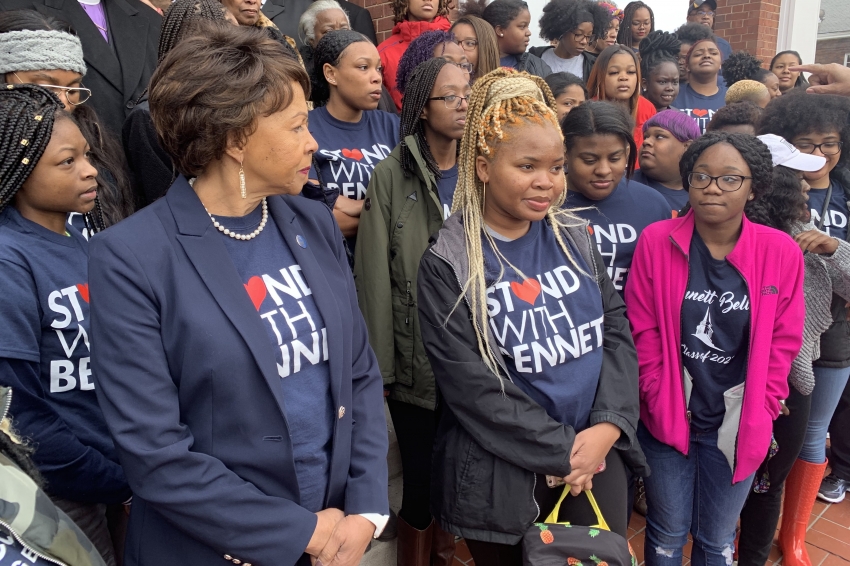Say Their Names; Renty and Delia
They are photos of Renty and his daughter, Delia. They are slave photos taken in South Carolina, and they were posed shirtless and were photographed from varying angles. These images have been identified as some of the earliest photos of American slaves, and Harvard University has been profiting from the display of these photos and ignoring requests from descendants to turn over the images to family members. Tamara Lanier believes these images are of two of her ancestors. She grew up hearing stories from her mom about Renty teaching himself to read and having a secret bible while on a plantation in Columbia, South Carolina. Renty was described as “small in stature but towering in the minds of those who knew him.” Lanier has verified her genealogical connection to Renty, and says this is her great-great-great-grandfather.
Tamera Lanier has sent requests to Harvard University twice, for the images to be turned over to her, and Harvard has ignored her requests. Now, Lanier is suing this “prestigious” university for “wrongful seizure, possession and expropriation” that she says depicts her family. In her lawsuit, she is demanding that Harvard turn over these photos, acknowledge her ancestry, and pay damages of an unspecified sum. Spokesperson for Harvard, Jonathan Swain, said in a statement, “the University has not yet been served, and with that is in no position to comment on this complaint.”
These 1850 daguerreotypes, which is defined as an early type of photo, were commissioned by biologist Louis Agassiz, a Harvard biologist. In the lawsuit, it states:
“Agassiz came across these photos while touring plantations in search of racially “pure” slaves born in Africa. To Agassiz, Renty and Delia were nothing more than research specimens. The violence of compelling them to participate in a degrading exercise designed to prove their own subhuman status would not have occurred to him, let alone mattered.”
Lanier believes her ancestors have been exploited by Harvard University. They have used these photos at conferences and they require what has been called a “hefty” licensing fee, to reproduce these images. Renty’s photo can also be found in a book sold by Harvard University. In Lanier’s suit, she is also demanding that Harvard acknowledge its responsibility of humiliating Renty and Delia, and that they are “complicit in perpetuating and justifying the institution of slavery.” The suit also says that Harvard cannot legally own these photos because Agassiz didn’t have his subjects’ consent and had no right to give them to Harvard; the photos should have been given to Renty and Delia’s next of kin.
Most importantly, Lanier believes that Harvard University violates the 13th amendment which abolished slavery. Why? Because Renty would be considered a 169 year slave according to civil rights attorney, Benjamin Crump. By ignoring the descendant’s requests and making a profit from Renty and Delia, Harvard is still profiting from the free labor of slavery. Attorney Crump asks, “how long will it be before Harvard finally frees Renty?“
Lanier hopes to have the photos of her ancestors, and she wants to tell the real story of who her great-great-great-grandfather was. She also hopes this sparks a discussion on race and history. “This case is important because it will test the moral climate of this country, and force htis coutnry to reckon with its long history of racism”, Lanier said during a news conference. By ignoring Lanier’s numerous requests, Harvard is continuing to capitalize on slavery.
Syllabus Magazine, the Carolina’s source for Music, Culture and Fashion



















